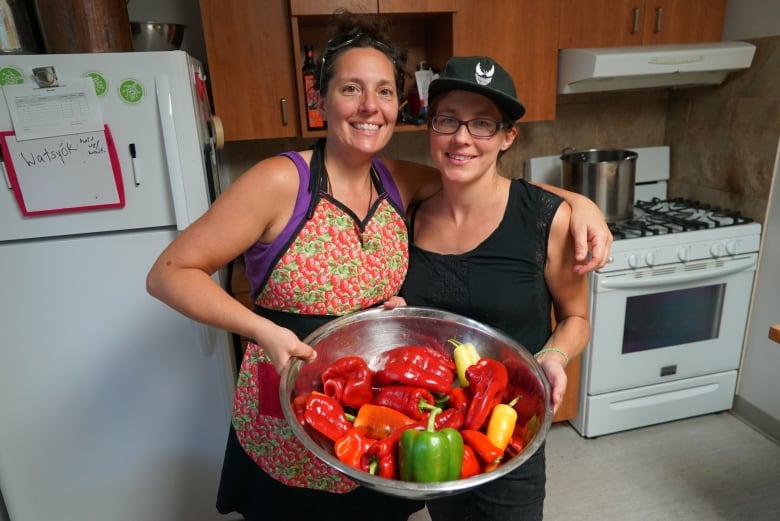Unreserved54:00The Root of it
Indigenous peoples on Turtle Island had food systems that sustained them for thousands of years. Colonization nearly destroyed these traditional ways of living on and with the land.
But today, Indigenous people — like Chandra Maracle and Deyowidron’t Teri Morrow from Six Nations of the Grand River — are reclaiming traditional food knowledge, learning how to incorporate this knowledge into their everyday lives and teaching others how to do the same.
According to Maracle and Morrow, food is more than sustenance for the body — it is tied to culture and community. And in Haudenosaunee communities like Six Nations, women hold a sacred responsibility of passing down food knowledge as a way to honour ancestors and preserve culture.

“A lot of things in a traditional diet … [are] foods closest to the earth,” Maracle told Unreserved host Rosanna Deerchild. “Unprocessed and prepared only in ways that are necessary in order for them to be able to be eaten.”
Maracle is completing a PhD at York University and has centred her research around the intersection of motherhood, prenatal and postnatal care and how food is linked to the health and well-being of Haudenosaunee families.
Taking care of women — which includes feeding them traditional foods — before and after giving birth is part of Haudenosaunee cultural revitalization, she said.
“To be able to care for women and their babies, to centre women in our families and communities is certainly part of our cultural traditions and teachings.”
Morrow is a registered dietitian and the chair of the Indigenous Nutrition Knowledge Information Network. She has been working to decolonize diets for over a decade.

She says that fostering a personal, cultural and mindful relationship with traditional foods is important for Indigenous people everywhere. And while highly processed and fast food is easy to come by, these meals don’t meet Indigenous peoples’ nutritional needs.
A lack of moderation and balance in the modern diet can contribute to weight gain, chronic diseases and a disconnection from cultural and emotional relationships to food, she added.
“We can’t always eat things because they give us … gratification,” she said. “There has to be other aspects to it like love, nurturing, a reciprocal relationship. [For example,] I’m eating these beans because I cared for them and they’re nurturing the soil.”
An Indigenous menu
Many traditional Indigenous foods — like squash, corn, salmon and berries — are easy to find in a grocery store.
The following menu is courtesy of Unreserved associate producer Aicha Smith-Belghaba, who is also a Haudenosaunee chef.
Featured VideoRosanna Deerchild, host of CBC’s Unreserved, joins producer and chef Aicha Smith-Belghaba as she demonstrates how it can be simple to incorporate Indigenous foods back into your diet.
Sweetgrass Sweet Tea
Sister Salmon Cannelloni
Lyed Corn Berry Parfait

